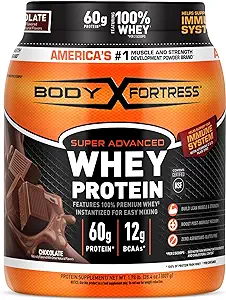Protein powders have become increasingly popular among fitness enthusiasts and health-conscious individuals. While many people associate protein supplements with long-term muscle building and recovery, there's growing interest in whether these products offer any immediate benefits. Let's explore the science behind protein powder consumption and its potential short-term effects on the body.
Key takeaways:
• Protein powders can quickly increase blood amino acid levels
• Some studies show improved cognitive function shortly after consumption
• Immediate feelings of fullness may aid in appetite control
• Rapid protein delivery may jumpstart muscle protein synthesis
• Individual responses can vary based on factors like timing and dosage
The rapid absorption advantage
One of the primary immediate benefits of drinking protein powder is its quick absorption rate. Whey protein, in particular, is known for its fast digestion and rapid delivery of amino acids to the bloodstream[1]. This rapid influx of amino acids can trigger various physiological responses within minutes to hours after consumption.
Dr. Stuart Phillips, a protein metabolism expert at McMaster University, explains: "Whey protein is absorbed faster than other forms of protein, leading to a more pronounced increase in blood amino acid levels. This spike can initiate cellular processes almost immediately."

Cognitive boost and mood enhancement
Emerging research suggests that protein consumption may have acute effects on brain function. A study published in the journal Nutrients found that participants who consumed a whey protein drink showed improved cognitive performance and increased alertness within 90 minutes of ingestion[2].
The mechanism behind this cognitive boost may be related to the amino acid tryptophan, which is a precursor to serotonin – a neurotransmitter associated with mood regulation and cognitive function. While more research is needed, these findings hint at potential immediate mental benefits from protein powder consumption.
Satiety and appetite control
One of the most noticeable immediate effects of drinking protein powder is increased feelings of fullness. Protein is known to be highly satiating, and consuming a protein shake can help curb hunger and reduce overall calorie intake in subsequent meals[3].
This effect is particularly beneficial for individuals looking to manage their weight or control their eating habits. The quick onset of satiety can be especially helpful in preventing overeating or snacking between meals.
Jumpstarting muscle protein synthesis
For those engaged in resistance training or intense physical activity, consuming protein powder immediately before or after exercise may provide rapid support for muscle recovery and growth. While the full effects of muscle protein synthesis occur over a longer period, the process begins shortly after protein consumption[4].
A 2013 study in the Journal of the International Society of Sports Nutrition found that consuming whey protein immediately after exercise led to significant increases in muscle protein synthesis within the first three hours post-workout[5].
Factors influencing immediate benefits
It's important to note that the immediate effects of protein powder can vary based on several factors:
• Timing of consumption (e.g., pre- or post-workout)
• Type of protein (whey, casein, plant-based, etc.)
• Individual metabolism and body composition
• Overall diet and nutritional status
• Intensity and type of physical activity
Dr. Jose Antonio, CEO of the International Society of Sports Nutrition, advises: "While protein powders can offer quick benefits, they should be viewed as a supplement to a balanced diet, not a replacement for whole food protein sources."
Conclusion
While many of protein powder's benefits are realized over time, there is evidence to suggest some immediate effects. From rapid amino acid delivery to potential cognitive enhancements and increased satiety, protein supplements may offer short-term advantages for those looking to optimize their nutrition and performance.
However, it's crucial to remember that individual responses can vary, and protein powders should be used as part of a comprehensive nutrition strategy. As research in this area continues to evolve, we may uncover even more immediate benefits of protein supplementation.
Stay updated
Interested in learning more about optimizing your protein intake for longevity and health? Subscribe to our newsletter for the latest research and expert insights on nutrition and healthy aging.
References:
[1] Tang, J. E., Moore, D. R., Kujbida, G. W., Tarnopolsky, M. A., & Phillips, S. M. (2009). Ingestion of whey hydrolysate, casein, or soy protein isolate: effects on mixed muscle protein synthesis at rest and following resistance exercise in young men. Journal of Applied Physiology, 107(3), 987-992.
[2] Giezenaar, C., Trahair, L. G., Rigda, R., Hutchison, A. T., Feinle-Bisset, C., Luscombe-Marsh, N. D., ... & Soenen, S. (2017). Lesser suppression of energy intake by orally ingested whey protein in healthy older men compared with young controls. American Journal of Physiology-Regulatory, Integrative and Comparative Physiology, 312(1), R3-R12.
[3] Paddon-Jones, D., Westman, E., Mattes, R. D., Wolfe, R. R., Astrup, A., & Westerterp-Plantenga, M. (2008). Protein, weight management, and satiety. The American Journal of Clinical Nutrition, 87(5), 1558S-1561S.
[4] Atherton, P. J., & Smith, K. (2012). Muscle protein synthesis in response to nutrition and exercise. The Journal of Physiology, 590(5), 1049-1057.
[5] West, D. W., Burd, N. A., Coffey, V. G., Baker, S. K., Burke, L. M., Hawley, J. A., ... & Phillips, S. M. (2011). Rapid aminoacidemia enhances myofibrillar protein synthesis and anabolic intramuscular signaling responses after resistance exercise. The American Journal of Clinical Nutrition, 94(3), 795-803.
Citations:
[1] https://www.medicalnewstoday.com/articles/323093
[2] https://www.soocial.com/protein-slogans/
[3] https://www.ncbi.nlm.nih.gov/pmc/articles/PMC6142015/
[4] https://www.insure4sport.co.uk/blog/protein-powder-pros-and-cons/
[5] https://www.healthline.com/nutrition/10-health-benefits-of-whey-protein
[6] https://www.jessicayung.com/protein-slogans/
[7] https://www.researchgate.net/publication/364384999_A_REVIEW_ON_WHEY_PROTEIN_BENEFITS_MYTHS_AND_FACTS
[8] https://www.sciencedirect.com/topics/agricultural-and-biological-sciences/protein-supplements














Member discussion